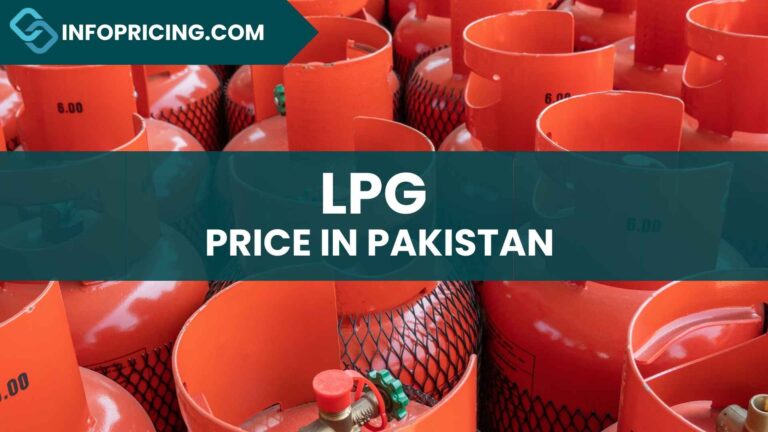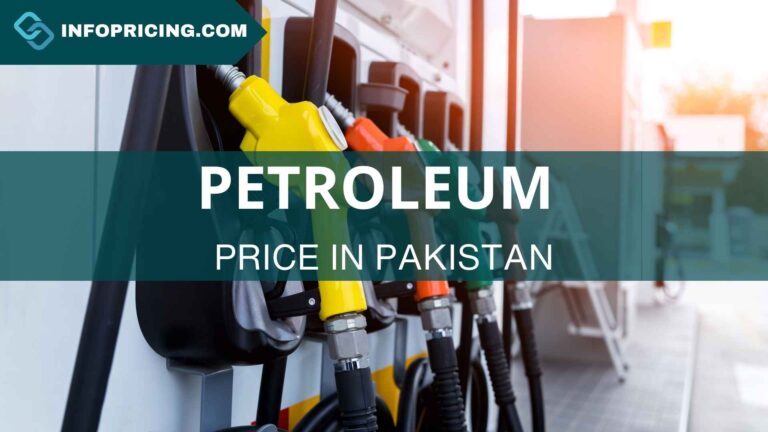CNG Price in Pakistan 2025
Keeping up with the latest CNG price in pakistan has been set at Rs. 194 per unit for both Region-I and Region-II. Region-I includes Khyber Pakhtunkhwa (KPK), Balochistan, and the Potohar region, which encompasses Islamabad, Rawalpindi, and Gujar Khan. Region-II comprises Sindh and Punjab, excluding the Potohar region. This pricing is regulated by the Oil and Gas Regulatory Authority (OGRA). It affects the economy and our environment. Prices can change a lot in different places, like Karachi and KPK.
This guide will look at what’s happening in the cng market. We’ll talk about what affects cng prices, including the cng rate in pakistan. Knowing the latest prices helps you make smart choices about fuel.

The fuel market is always changing. It’s important to know about the current cng prices. This knowledge helps you decide how to use fuel wisely.
CNG Prices in Pakistan 2025
| CNG Products | Rates |
|---|---|
| CNG Region-I (Khyber Pukhtunkhwa, Baluchistan, Potohar region; Islamabad, Rawalpindi and Gujar Khan) | Rs. 194/Kg |
| CNG Region-II (Sindh and Punjab excluding Potohar region) | Rs. 194/Kg |
Key Takeaways
- Understanding the current cng price in pakistan is essential for making informed decisions about fuel consumption.
- The cng price in different regions, including cng price karachi and cng price in pakistan kpk, can vary significantly.
- Staying up-to-date with the latest cng prices can help individuals and businesses navigate the fuel market effectively.
- The cng rate in pakistan is influenced by various factors, including market trends and economic conditions.
- By exploring the latest cng prices, readers can make choices that benefit their wallets and the environment.
Understanding CNG Price in Pakistan: Current Market Overview
The market for Compressed Natural Gas (CNG) in Pakistan is shaped by many factors. These include global demand and supply chain issues. To grasp the cng rate in Pakistan, we must look at current trends and prices. The cng price islamabad is key, showing the capital city’s prices.
Recent cng news pakistan shows CNG prices are changing. These changes are due to global demand and supply shifts. The cng rates today reflect these changes, making it important to keep up with prices. Here are some important points:
- Global demand for CNG is rising, pushing prices up.
- Supply chain problems can lead to price swings.
- Government policies, like taxes and subsidies, also affect CNG prices.
It’s vital to watch the cng rate and cng price islamabad for smart CNG use. Keeping up with cng news pakistan and cng rates today helps users make the best of CNG.
Regional Price Variations Across Pakistan
The cng price update in Pakistan has led to significant regional price variations. Factors such as transportation costs, taxes, and demand contribute to these differences. A cng price analysis reveals that prices in major cities like Karachi, Lahore, and Islamabad vary due to local market conditions.
In terms of cng cost in pakistan, the prices are influenced by the cng price hike, which affects the overall economy. The regional price variations have implications for the local economy, with some areas experiencing higher prices than others. For instance, the cng price in Karachi is different from that in Lahore, due to differences in transportation costs and taxes.
A closer look at the regional prices reveals the following key points:
- Karachi: The cng price in Karachi is affected by the city’s high demand and transportation costs.
- Lahore: The cng price in Lahore is influenced by the city’s large population and industrial activities.
- Islamabad and Rawalpindi: The cng price in these cities is affected by the regional market conditions and government policies.
- KPK Region: The cng price in KPK is influenced by the regional demand and supply dynamics.
Understanding these regional price variations is crucial for consumers and businesses to make informed decisions about cng usage. By analyzing the cng price update and cng cost in pakistan, individuals can better navigate the market and optimize their energy consumption.
Factors Influencing CNG Prices
The cng price trend in Pakistan is shaped by many things. These include global events, government policies, and changes with the seasons. Knowing these factors helps predict the cng price forecast and guides decisions on the cost of cng.
Some important factors that affect current cng prices in pakistan are:
- Global demand and supply chain disruptions
- Government policies, taxes, and regulations
- Seasonal changes and weather
These elements greatly influence the cng price trend. It’s vital to keep up with market news. By studying these factors, people can better understand the cng price forecast and make smart choices about their energy use.
The cost of cng also varies by region in Pakistan. Knowing these differences is key to making smart choices about current cng prices in pakistan.
Comparing CNG Prices with Other Fuel Options
When looking at fuel costs, it’s key to check cng price trends and compare them to petrol and diesel. In Pakistan, pakistan cng rates change often. This makes it important to see how CNG prices compare to other fuels. By knowing the cng price fluctuations, people can choose the best fuel for them.
It’s also important to think about the long-term savings of using CNG. Although buying a CNG vehicle might cost more upfront, you can save a lot in the long run. Here are some points to consider:
- CNG is usually cheaper than petrol and diesel, which makes it a good choice for daily trips.
- CNG cars make fewer emissions, which means less pollution and a cleaner environment.
- The cng price trends in Pakistan show a steady supply, which means less worry about price changes.
Comparing CNG prices with other fuels is vital for those who want to make smart fuel choices. By looking at the cng price comparison and cng price fluctuations, you can pick the most affordable and eco-friendly option.

Recent Price Fluctuations and Market Trends
The latest cng prices pakistan have seen big changes lately. These changes come from global demand shifts and supply chain problems. Experts keep a close eye on the cng price trend pakistan, expecting prices to swing with market conditions.
Global demand for natural gas is a big factor in cng cost pakistan. When demand goes up, so do CNG prices. Also, supply chain issues like transport problems or production shortfalls affect cng price fluctuation in pakistan. To grasp the current market, here are some important points:
- The current market trends show a steady rise in CNG prices due to high demand and limited supply.
- The latest cng prices pakistan are expected to keep changing based on global market conditions.
- Experts believe the cng price trend pakistan will stay unpredictable in the next few months.
In summary, recent changes in CNG prices and market trends are linked to global demand and supply chain issues. As cng cost pakistan keeps changing, it’s crucial for consumers to stay updated on the latest cng prices pakistan and cng price trend pakistan. This helps them make smart choices about their energy use.
Impact of Government Policies on CNG Rates
The government has a big role in the CNG industry in Pakistan. Policies and rules can change the cng price per kg pakistan. It’s important to know about taxes and rules to understand the current prices.
Taxes are a big part of government policy. The cng price per kg changes because of taxes on CNG stations and users. Knowing these taxes helps figure out the cng price per liter. Also, rules for the CNG industry can affect the cost of CNG.
Tax Implications
- Taxes on CNG stations and consumers
- Impact of taxes on cng price per kg pakistan
- Regulatory framework and its effects on the industry
Subsidy programs are also important for the CNG industry. They can lower the cng price per liter for people, making CNG more appealing. But, we must think about how these programs affect the economy.
Consumer Guide to CNG Station Networks
The need for Compressed Natural Gas (CNG) is rising. It’s key to have a solid network of CNG stations. When looking for cng stations near me, think about cng cost per gallon and cng fuel prices. With current cng prices changing, finding a station with good rates is important.
To find a trustworthy CNG station, start with online reviews and ratings. Ask friends or family who use CNG for tips. Many CNG station networks also have mobile apps. These apps help find stations, check prices, and pay for fuel.
Here are some tips for finding a reliable CNG station:
- Check the station’s operating hours and availability to ensure they meet your needs
- Look for stations with multiple fueling lanes to minimize wait times
- Check the station’s maintenance schedule to ensure they are well-maintained
By following these tips, you can find a reliable CNG station. It will meet your needs and offer a convenient, cost-effective way to fuel your vehicle.
Economic Benefits of CNG Usage
Compressed Natural Gas (CNG) offers many economic benefits. One big advantage is the cost savings it brings. With best cng prices and cheapest cng rates, people can cut down their fuel costs a lot. Also, CNG pump prices tend to stay steady, giving users peace of mind.
In Pakistan, CNG usage has gone up a lot. This has cut down the country’s need for imported fuels. This change has helped Pakistan’s trade balance, as it spends less on fuel imports. CNG has also led to new jobs in the industry, boosting the local economy.

- Lower fuel costs
- Reduced dependence on imported fuels
- Job creation in the CNG industry
- Positive impact on the trade balance
Using CNG as a fuel has many economic pluses, like saving money and creating jobs. As more people turn to CNG, we can expect even more benefits in the future.
Environmental Impact of CNG Consumption
Compressed Natural Gas (CNG) is becoming more popular in Pakistan. Many people choose it because it’s cheaper than traditional fuels. The natural gas price in pakistan is low, and CNG is good for the environment.
In cities like Lahore and Karachi, people watch the lahore cng prices and karachi cng rate closely. They want to cut down on pollution. Using CNG helps reduce harmful emissions, which is good for the planet.
- Lower emissions: CNG produces significantly lower emissions compared to traditional fossil fuels, making it a cleaner and more environmentally friendly option.
- Reduced carbon footprint: By choosing CNG, consumers can reduce their carbon footprint and contribute to a more sustainable environment.
- Energy efficiency: CNG is a highly energy-efficient fuel source, which means that it can help reduce energy consumption and lower energy costs.
The benefits of using CNG for the environment are huge. As more people care about the planet, they’ll choose CNG. This will help the industry grow and make our future greener.
Future Outlook for CNG Prices
The future of CNG prices in Pakistan is a topic of great interest. Many factors influence the market. It’s essential to consider the islamabad cng cost and how it compares to other regions. The comparison of cng prices across different cities can provide valuable insights into the overall trend.
When examining the cng stations in pakistan, it’s clear that the network is expanding. This could lead to increased competition and potentially lower prices. However, global demand and supply chain disruptions may also impact the market. This makes it challenging to predict the future outlook.
Some key factors to consider when evaluating the future of CNG prices include:
- Government policies and regulations
- Global demand and supply trends
- Technological advancements in the industry
By analyzing these factors and considering current market trends, we can gain a better understanding. This will help us see what the future may hold for CNG prices in Pakistan. As the market continues to evolve, it’s crucial to stay informed and adapt to the changing landscape.
Conclusion
CNG prices in Pakistan show a lot of promise for a greener and more affordable future. The prices change based on where you are and the market. This shows how fast the CNG world is moving.
The future of CNG in Pakistan looks bright. With government help and the right policies, more people will use CNG. This will help the environment and save money for drivers in the long run.
For those using CNG, knowing the latest prices and where to find stations is key. Choosing CNG helps the planet and saves money. It’s a win-win for everyone.
The journey ahead for CNG in Pakistan is clear. Working together, we can make the most of this powerful energy source. This will lead to a better, greener future for all of us.
FAQ
What is the current CNG price in Pakistan?
CNG prices in Pakistan change by region and city. They can go up or down because of global demand, supply issues, and government rules.
How do CNG prices differ across different regions of Pakistan?
CNG prices vary a lot in Pakistan, like in Karachi, Lahore, Islamabad, and KPK. These differences come from transport costs, taxes, and local demand.
What factors affect CNG prices in Pakistan?
Many things affect CNG prices in Pakistan. These include global events, supply and demand changes, government policies, taxes, and seasonal changes.
How do CNG prices compare to other fuel options in Pakistan?
CNG is usually cheaper than petrol and diesel in Pakistan. It can save money in the long run. But, prices can change based on the market.
What is the impact of government policies on CNG rates in Pakistan?
Government policies have a big impact on CNG prices in Pakistan. These policies can make CNG more affordable or harder to get.
Where can I find reliable CNG stations in Pakistan?
It’s important to find good CNG stations. Look at their hours, availability, and reputation for service.
What are the economic benefits of using CNG in Pakistan?
Using CNG can save a lot of money compared to other fuels. It also helps Pakistan use less imported fuel, which is good for trade.
What are the environmental benefits of CNG usage in Pakistan?
CNG is cleaner than other fuels, which helps reduce harmful emissions and improves air quality. It’s better for the environment.
What is the future outlook for CNG prices in Pakistan?
The future of CNG prices in Pakistan depends on many things. These include global trends, government policies, and what experts say. It’s important for everyone to keep up with these changes.


